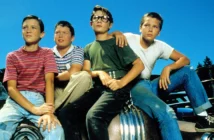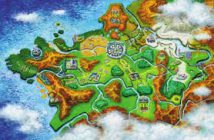When you think of witches, you think of cauldrons, black spiky hats, broomsticks and black cats. But where does this automatic association come from? The image of the traditional witch has been circulating the fantasy and supernatural genre for centuries with one of the earliest mentions of the witch in the Bible. Since then the witch and the supernatural has evolved throughout different medias, one of the most interpreted and influential images being on stage and in theatre. Much like films, the director and playwright have free reign of how they present their characters, but the ways in which the fantasy and supernatural thread is used alters the entire dynamic of the production, not to mention certain threads and tropes of fantasy having connections to specific time eras and playwrights.
The idea that Shakespeare, to name the most prolific playwright, presents us with supernatural beings, because people believed in them at the time is just not true. All the sources of fantasy and supernatural he acquired were from books that explicitly stated fantasy as superstitious nonsense and that witches and fairies did not exist in any way shape or form. However, when presenting these supernatural figures and events, Shakespeare appears to be much less original than he actually is being. This is mainly because everything we know about witches, wizards, fairies and ghosts and what they look like and are supposed to do, all come to us from Shakespeare’s plays. When we think of ghosts we tend to think of something a bit like Hamlet’s father or the ghost of Banquo in Macbeth, and when we think of fairies we tend to think of something rustic and involved with delicate flowers and nature much like the fairies in the woods from A Midsummer Nights Dream. Not to mention the magic and conjuring we see in The Tempest which aided in forming the ritual of witchcraft. Shakespeare is fully prepared to convince us that these supernatural figures and events are real beings, yet he is also prepared to go in the opposite direction. In Othello we have this extremely evil character without the involvement of the supernatural and, as Othello checks his foot to see if it’s cloven he dismisses it as ‘a fable’, implying the devil and other creatures are purely non-existent.
The theatre can be a place where you go to look into the other realm, it acts as a threshold between the two worlds. However, it can also be a place to go to view the world just as it is, to see human behaviour in any usual way. Not only was it Shakespeare at this time using the fantasy tropes in his plays, Marlowe’s most acclaimed play Dr Faustus has angels and demons rising from the ground and people competing to sell their souls to the devil in exchange for magic and possibilities beyond the world itself. This thread of fantasy has a huge impact on Faustus as he’s blinded by the fantastical elements and eventually makes a deal with Satan, which makes fantasy the downfall of the character and is at the centre of the play. Many people enjoy the genre of fantasy and ever since its first representations on stage it’s become a huge mainstream genre with franchises like Harry Potter and Lord of The Rings, and many children’s genres such as Narnia and Alice in Wonderland have continued to influence the genre for the new generations.




